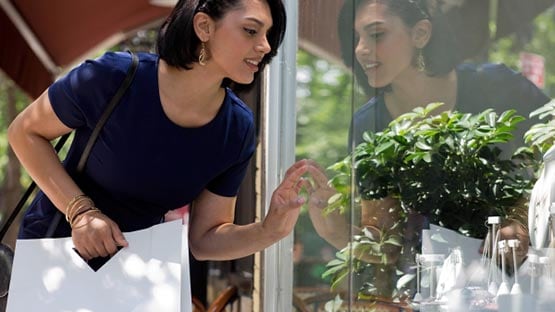
Time for consumer packaged goods companies to go direct to Dutch shoppers
When the Dutch go shopping, they don’t usually gravitate toward the store-brand stuff. Typically, A-brand products are the first things they drop into their baskets.
PwC’s 10th annual Global Consumer Insights Survey (GCIS) clearly shows their preferences. Almost half (47%) of the Dutch consumers surveyed who buy coffee, for instance, will reach first for long-established brand names. More than half will pick well-known labels over a retailer’s own-brand soft drink. And for shampoo buyers, their preference for A-brands is even more marked (see Exhibit 1).
However, that doesn’t mean that the makers of premium brands have it all their own way. In fact, they’re under continual pressure from specialty brands across all kinds of supermarket categories. For every shelf placement allocated to A-brand beverages, for example, there’s increasing competition from niche brands and startups offering everything from low-calorie juices to new kinds of energy drinks. And just because Dutch consumers prefer A-brands doesn’t mean they avoid private-label products altogether. Far from it. PwC’s study reveals that in the Netherlands, half of all shoppers say they buy supermarket brands of sweet biscuits and washing products, for example.
So where does that leave makers of A-brands? Yes, they will continue to be pressured from all sides. Yes, they must redouble their innovation efforts. Yes, they can plan to acquire some of their smaller rivals.
But PwC has identified another option. Manufacturers should consider expanding their direct-to-consumer (DTC) sales channels — or rapidly pilot e-commerce initiatives if they are not active in DTC already. PwC’s study confirms Dutch shoppers’ openness to that possibility. In some key categories, two out of five consumers would consider purchasing directly from the manufacturers (see Exhibit 2).

Establishing direct links with Dutch consumers not only allows consumer packaged goods (CPG) companies to “own” more of the value chain, it also enables them to better “read” and thus respond to the market. With a direct connection to customers, companies can more easily sense new consumer trends, more quickly capture granular consumer data, and more closely tailor product offerings to key market segments. More than that: they can tighten up everything from product development cycles to marketing methods.
The GCIS survey results indicate that CPG companies now have the right to embed DTC in their go-to-market strategies. There should be no doubt that this is a growth path. DTC is no longer optional. It is a prerequisite for long-term success in the CPG sector.
Explore the NL findings

Dutch shopping in 2019
Online buying is rapidly becoming the norm for consumers in the Netherlands. More than 30% of Dutch respondents in PwC’s 10th annual Global Consumer Insights Survey (GCIS) said they make online purchases weekly or more frequently, putting habits in the Netherlands in line with the global average.

Sustainability
There’s a perception that the Netherlands is a world leader in sustainability. But PwC’s 10th annual Global Consumer Insights Survey (GCIS) reveals that Dutch consumers actually lag slightly behind the citizens of many other nations when it comes to sustainable shopping habits.



















